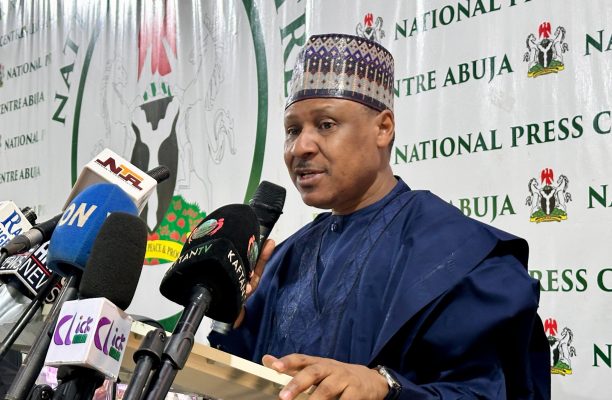Minister of Information and National Orientation, Mohammed Idris, has stated that President Bola Tinubu’s Renewed Hope Agenda is laying a strong foundation for Nigeria’s economic revival through decisive reforms, targeted investments, and inclusive policies.
Speaking at the 2025 Nigeria Public Relations Week in Uyo, Akwa Ibom State, Idris highlighted the administration’s achievements, describing its economic strategy as one of the most impactful in Nigeria’s history.
“With full confidence, I assert that the Renewed Hope Agenda is steadily charting a course for Nigeria’s economic resurgence,” Idris said. He called on public relations professionals to help communicate this transformation effectively, using inclusive and value-driven approaches to inspire collective national engagement.
The Minister said the economic restructuring began on Tinubu’s first day in office with the removal of fuel subsidies and exchange rate unification — reforms he described as pivotal to the country’s economic reset. While these measures initially caused hardship, he said they are now delivering tangible benefits, including exchange rate stabilization, increased revenue for state governments, a boost in local oil refining, and improved fiscal stability.
As the administration nears its second year, Idris pointed to what he called “unprecedented investments” in sectors like infrastructure, agriculture, security, and human capital. Notable accomplishments he outlined include:
N2.5 trillion allocated to road construction in 2025 — the highest in Nigerian history. Creation of ministries for regional development and livestock, aimed at accelerating regional growth and unlocking agricultural potential. Launch of the Nigeria Education Loan Fund (NELFUND), which has supported over 300,000 students. $450 million invested in Compressed Natural Gas (CNG) infrastructure through the Presidential CNG Initiative. Establishment of CreditCorp, enabling citizens to access credit for essentials like housing and healthcare. N200 billion earmarked to support nano businesses, small and medium enterprises, and manufacturers.
He noted major infrastructure projects underway, including the Lagos-Calabar and Badagry-Sokoto superhighways, the revitalization of the Port Harcourt and Warri Refineries, the Kano-Kaduna Standard Gauge Railway, and the reconstruction of the Alau Dam in Borno State projects that demonstrate nationwide impact.
Citing positive economic trends, Idris referenced recent data from the National Bureau of Statistics, which showed that headline inflation in April dropped to 23.71% from 24.23% in March a sign, he said, of the effectiveness of Tinubu’s economic interventions.
He encouraged public relations experts to play a key role in shaping and amplifying Nigeria’s renewed economic narrative. “Nigeria is rising,” he declared. “With over $50 billion in new foreign direct investment pledges, $21.9 billion in diaspora remittances, and ₦730 billion contributed by Nollywood to GDP, we have powerful stories to tell — and they must be told with professionalism and patriotic purpose.”
The Minister also reaffirmed his ministry’s commitment to strategic national messaging through the newly launched National Strategic Communication Framework (NSCF).
Concluding his address, Idris congratulated Dr. Ike Neliaku, President and Chairman of Council of the Nigerian Institute of Public Relations (NIPR), on his recent appointment as Regional Delegate-at-Large for the Global Alliance for Public Relations and Communication Management, applauding his leadership in elevating Nigeria’s PR practice on the global stage.

